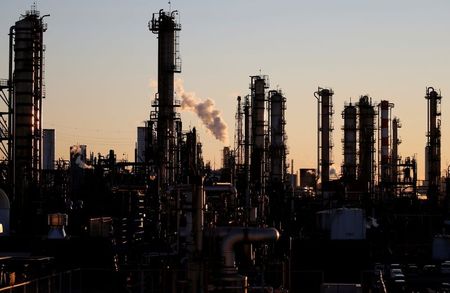Transition to green economy may lead to job losses across UK

Areas of the UK hardest hit by job losses from decarbonising industry will miss out on levelling-up funding and face losing more employment, new research suggests.
A study of the most polluting industries warned the move to a “green” economy risks jobs, even with levelling-up funds.
The Royal Society for Arts, Manufactures and Commerce (RSA) said areas such as Aberdeen, Port Talbot and Stratford-upon-Avon could be affected if jobs in steel manufacturing and car production decline and the use of fossil fuels drops.
Its report calls for a Just Transition Fund to support areas impacted by a decline in “polluting jobs”, warning up to half of the places that will be hit hardest by job losses from decarbonisation are not in the Government’s top priority areas for levelling-up funding.
Ministers are urged to do more to support areas at risk of being left behind in the switch from industries such as fossil fuel production to greener ones.
The RSA said half of the 20 most fossil fuel-reliant areas in the UK have not been labelled as a priority for the Government’s aim of levelling up.
Fabian Wallace-Stephens, senior researcher at the RSA, said: “Decarbonisation is essential and can lead to a better future for workers and communities, but only if the state takes an active role in shaping local labour markets through investment, skills training and better welfare support.
“But at present, many of the areas where the impacts will be most acutely felt are not in the priority categories for levelling-up funding.
“We need to make sure that decarbonisation policy and levelling-up policy work hand-in-hand to secure a better future for the most affected communities.”
GMB union general secretary Gary Smith said: “Government must set up a Renewables Development Authority to grow the skills and facilities for a UK supply chain for the massive investment required for net zero. This can help alleviate the job losses identified elsewhere.”
He added that thousands of giant offshore wind turbines are needed to meet climate change targets, which will need 30,000 steel fabrication jobs every year and 20 million tonnes of steel.
Unite assistant general secretary Steve Turner said: “The necessary transition to a new green economy must put workers and communities at its heart.
“Working people will only be won over when they’re confident that no workplace or community will be left behind on our journey.
“We need and deserve so much more than sound bites and rhetoric, we will not buy a pig in a poke.
“The Government has no industrial plan or strategy to reassure UK workers or this union that a ‘green’ transition will be either fair or just.”
A Government spokesperson said: “We do not accept this analysis. We are levelling up in every part of the United Kingdom, spreading opportunity, empowering local leaders, improving public services and regenerating our town centres and high streets.
“As we move to a green economy and deliver net zero, new jobs are being created – 56,000 just this year – and we’re building on that through a £200 million boost to communities by providing skills training for the unemployed and investment in businesses developing low-carbon technology.
“The forthcoming Levelling Up White Paper will set out how we will further improve opportunity and boost livelihoods across the country as we recover from the pandemic.”